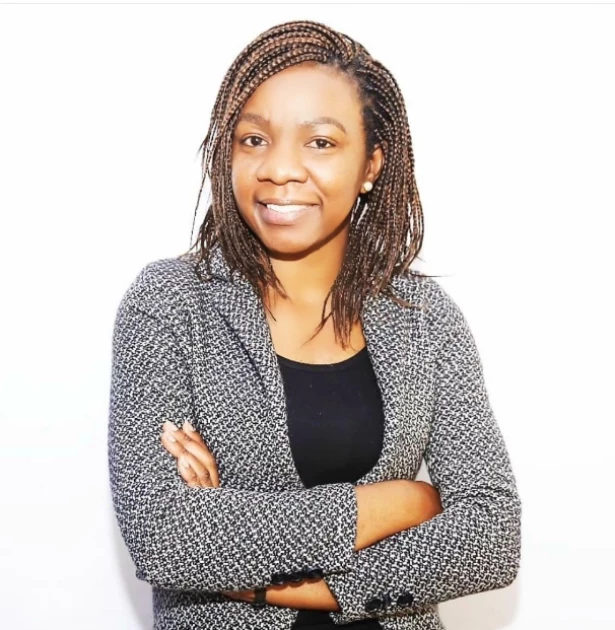OPINION: How African citizens can take control of their data in the age of surveillance

A person wearing a balaclava is silhouetted as he poses with a laptop in front of a screen projected with the word 'cyber' and binary code, in this picture illustration taken in Zenica October 29, 2014. REUTERS/Dado Ruvic/File Photo

Audio By Vocalize

Across Africa, mobile connectivity has surged,
outpacing traditional infrastructure and ushering in a data-driven economy. But
as digital services expand, so too does the quiet erosion of privacy. Every
tap, swipe, and search feeds into vast stores of personal data, much of which
is collected without informed consent or proper oversight. In East Africa, the
question is no longer whether privacy matters, but how citizens can protect
themselves in real time.
Laws meant to safeguard data often lag behind
digital adoption. Surveillance, once the domain of intelligence agencies, is
now routine, often framed as national security or administrative efficiency. In
some countries, tools designed for health monitoring or digital ID systems have
been repurposed to monitor dissent. Meanwhile, lax regulation enables private
firms, especially telecoms and fintechs, to harvest and monetise data with
little scrutiny.
While legal advocacy remains essential, many
rights groups are turning to more direct interventions. Self-defence in the
digital sphere now relies on citizen knowledge and practical tools. One such
example is Ayeta, a digital resilience toolkit developed by Paradigm
Initiative. Unlike generic cybersecurity kits, Ayeta is customised for African
realities, providing resources in multiple languages and emphasising
accessible, everyday security measures such as encrypted messaging, safer
browsing, and metadata hygiene. It redefines cybersecurity as a civic skill
rather than a specialised task.
This localisation is important. Many African users
depend on second-hand devices, outdated software, and subsidised data bundles
that limit access to broader internet tools. For journalists, activists, and
ordinary citizens, these gaps pose serious vulnerabilities. In such environments,
knowing how to manage app permissions or secure communications isn’t
optional—it’s vital for safety.
Ayeta’s strength lies in its integration of
behavioural and psychosocial strategies alongside technical guidance. It
tackles the fatigue and anxiety that come with constant surveillance, which
often lead to lapses in discipline. Its peer-to-peer approach fosters communal
resilience, recognising that digital safety is rarely a solo effort.
However, as civil society advances, governments
are starting to respond. In Kenya, the Office of the Data Protection
Commissioner issued updated guidelines in 2023 to enhance compliance among data
controllers and processors. These cover consent management, cross-border
transfers, and sharing data with third parties. While the purpose is clear,
enforcement remains weak, and most citizens are unaware of their rights.
Without substantial investment in public awareness and institutional
independence, such efforts risk being merely symbolic.
This regulatory fragility is not exclusive to
Kenya. Throughout the region, oversight bodies are often underfunded or
politically biased. Multinational technology companies operating in African
markets frequently abide by opaque government requests for data access, citing
local laws. Legal frameworks are in place but are seldom tested in courtrooms.
In this context, responsibility falls on citizens and civil society to fill the
gap.
That shift must be addressed through strategic
investment. Resources like Ayeta should be incorporated into national
curricula, journalism training, and civil service development. Building a
resilient digital culture demands much more than just firewalls. It requires
political will, public education, and a rebalancing of power between users and
institutions.
Encouragingly, grassroots momentum is growing.
Digital security hubs, informal training networks, and community-led privacy
clinics have emerged in Nairobi, Kampala, and beyond. While fragmented, these
efforts reflect a deeper shift: people recognising that their rights are now
contested not only in parliaments or protest grounds, but inside smartphones,
app permissions, and data logs.
The threat environment is also evolving. Biometric
databases, algorithmic profiling, and predictive policing are gaining traction
without adequate safeguards. The most effective forms of control in the digital
age are not overt, but systemic, built into the architecture of platforms,
contracts, and code. In this new reality, digital rights are not theoretical.
They are existential.
Protecting those rights won’t come solely from
courtrooms. It will also come from the inbox, the chat thread, or the local
internet café. It requires a shift in mindset, from passive use to active
stewardship. Tools like Ayeta don’t provide immunity, but they do provide
agency. They remind users that security is a shared responsibility and that
silence or inaction only increases the risk.
The challenge for institutions, both public and
private, is whether they will support this movement or simply tolerate it.
Until structural reforms catch up, resilience will remain a key focus. African
citizens are not waiting. With knowledge, networks, and the right tools, they
are starting to take back control over their data and, by extension, their
democratic space.
[The write is the Communications Manager, Paradigm
Initiative.]


Leave a Comment